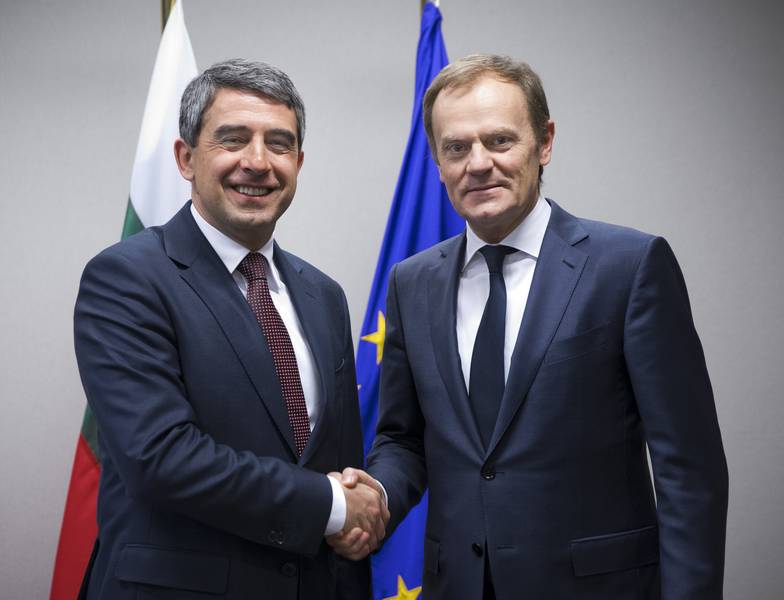The Bulgarian Vision for EU for the First Time in EP
Adelina Marini, June 8, 2016
 It is finally Bulgaria’s turn to present to the European Parliament its position on what is happening in Europe and its vision for the future of the EU. This will be done at noon CET by President Rosen Plevneliev. As he does not wield executive power, there will not be any debates with him in plenary. He will give his speech and later give a joint press conference with EP President Martin Schulz (Socialists and Democrats, Germany). So far, many leaders of member states have responded to the invitation of the EP president to present their country’s vision on the EU future. Ever since the European Parliament gained new and stronger powers with the Treaty of Lisbon of 2009, facing the MEPs have stood German Chancellor Angela Merkel, French President François Hollande, the two of them also appearing together last year at the peak of the refugee crisis, when there were serious concerns about a disintegration of the EU.
It is finally Bulgaria’s turn to present to the European Parliament its position on what is happening in Europe and its vision for the future of the EU. This will be done at noon CET by President Rosen Plevneliev. As he does not wield executive power, there will not be any debates with him in plenary. He will give his speech and later give a joint press conference with EP President Martin Schulz (Socialists and Democrats, Germany). So far, many leaders of member states have responded to the invitation of the EP president to present their country’s vision on the EU future. Ever since the European Parliament gained new and stronger powers with the Treaty of Lisbon of 2009, facing the MEPs have stood German Chancellor Angela Merkel, French President François Hollande, the two of them also appearing together last year at the peak of the refugee crisis, when there were serious concerns about a disintegration of the EU.
European citizens were addressed from the tribune in Strasbourg also by the former Finnish Prime Minister Jyrki Katainen, who currently serves as one of the European Commission's Vice-Presidents, the president of Italy, the Estonian president recently visited Strasbourg and sent a strong message on the future of the Union, the president of Slovenia Borut Pahor, the Spanish king Felipe. Pope Francis also stood in front of MEPs. Long expected guest of MEPs, who never made it to the plenary, is British Prime Minister David Cameron. For years he has been declining invitations to appear in plenary, and only after the date for the referendum for Great Britain’s membership in the EU (June 23) did he agree to speak, but only in front of political groups’ leaders. Later he refused to do it publicly.
Appearances of member state leaders in front of MEPs are some of the rare opportunities to hear their views on the state of the EU and its future. The European Parliament managed to call in leaders for explanations, when a certain country is making trouble in the EU. Along this line in Strasbourg appeared the Prime Ministers of Hungary Viktor Orbán and Poland Beata Szydło, to give explanations whether they are leading their countries towards authoritarianism and illiberal democracy.
The tradition is that state and government leaders appear in the European Parliament compulsory when their state takes on the rotating presidency of the Council. The speech of President Plevneliev will be webcasted live on the audiovisual channels of the EC and the EP. euinside will provide you with live updates about the head of state’s speech in our free talk corner.
Translated by Stanimir Stoev